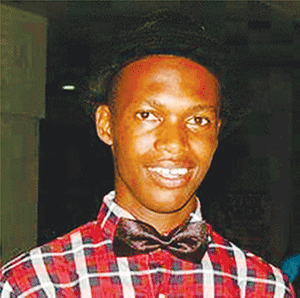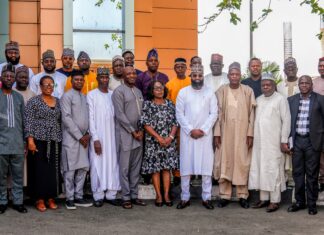Festus Iyorah, a third year student of mass communication at the University of Nigeria, Nsukka (UNN), doubles as a photographer.
When there is an occasion on and outside campus – and if he can skip lectures – he makes himself available with his camera to help capture the moment. For this, he gets paid.
Despite the mentality to get rich quick in the Nigerian fabric, a few individuals like Iyorah have multiple skills for making a living without getting involved in criminal activity.
Unlike some of his mates who allow the rising cost of education to impede their life goals, Iyorah uses photography to pay his way in school – buying text books, photocopying education materials, paying bills, and meeting other demands.
Fees per session in private universities start from N300,000 state N50,000 and federal N40,000. This is apart from acceptance fee for 100 level students, which ranges between N5,000 and N20,000 in federal universities.
Despite the lower fees in federal universities, a student may need at least N100,000 to get through a year, which is out of the reach of many.
In May this year, students at Obafemi Awolowo University (OAU), Ile-Ife broke out in protest upon learning of increase in fees. With the hike, students of humanities were to pay N61,700 per session, sciences N72,700 and clinical pharmacy N75,700 in addition to N20,000 acceptance fee paid by new students.
Paying the initial school fees is just one of the many financial hassles students from low income backgrounds go through to acquire tertiary education.
In many universities, polytechnics and colleges of education, poor students do odd jobs: they sell shoes and handsets, become barbers, or resort to vice and crime to survive.
Wake up call
There is re-awakening among Nigerian students that university education alone is not enough these days.
While some engage in part time trade to support themselves without the intention of going into business after graduation, Iyorah believes it can be a back up career.
“I want to go big into this job (photography). One can get a sack letter from an employer at any time. Once I graduate, photography will help me a lot,” he said.
Iyorah, whose father gave him the camera, is doing the gig to help reduce the financial burden on his parents. “I don’t want to keep asking for money.”
To go into photography, he said, “N50,000 is enough if you just want it on a small scale. But if you are planning to make it really big, you should be looking at N120,000 and above (to cover the entire gear: mini printer, camera, et cetera).
“My challenges are that, for instance, if there is a lecture at 9 o’clock in the morning, I have to leave my house by 7 o’clock just so I can print the pictures.
“At other times, while my mates are going for lectures in other departments, I have to stay back in my department so that people can come and collect their pictures.”
“The condition in this country demands that a student knows other things apart from his or her course of study. I believe students should learn hairdressing, fashion designing, et cetera.”
Bose Ogundola had been making and selling liquid soap in Lagos before she recently gained admission into Adeyemi College of Education, Ondo, Ondo State.
“I went into the business of soap making to support my finances,” she disclosed.
Asked if she would continue with it in school, she said, “it depends. But whatever happens, I will ask God first in prayer.”
Ogundola also has her own challenges, lamenting that “sometimes the soap doesn’t come out as planned.”
Ogbonnia Idam, who recently graduated in microbiology, combined studies and doing printing jobs while at UNN.
“It is not a bed of roses; very challenging. Anybody can do it. But you have to understand yourself, and manage your time well,” he said, recalling his printing experiences.
“Sometimes you can run out of cash when the semester is still on and you might need to make quick cash to pay for dues, hand-outs and to honour other financial obligations.”
Extra cash versus lifeline
Vivian Scott, who attended Tai Solarin University of Education, Ijebu-Ode, Ogun State, sold imported clothes to fellow students to make extra money. Her clothes were in high demand because she shipped them in from her sisters who lived in the United Kingdom. She made a profit of at least N1,000 per item.
Ayoleyi Egbaiyelo, who also attended Tai Solarin University, sold imported clothes and perfumes which were equally in high demand because of the foreign label. She got wares from her mother and sisters in the UK.
Unlike Scott, who was well off and only looking for extra cash, the business for Egbaiyelo was a lifeline, the only source of funds for her education.
Make up artist earns N100K a month
Also in on the game are Clementina Clement and Titilayo Omonuwa, both students at the University of Benin (UNIBEN).
Clementina, a 400 level student of mass communication, is a make up artist whose customers include fellow students, lecturers’ wives, and people outside the campus.
“Make up is something I have a flair for. It was a hobby, but I suddenly realised I could make money with it. I started with N15,000.
“I charge N2,000 per person for a regular make up. For bridal make up, I charge N30,000 and above. In a week, I can earn more than N30,000,” she said.
On average, Clementina earns about N100,000 a month. She sends some of it back home to fend for her parents and spends the balance on her own upkeep – paying fees, buying books and lecture hand outs, feeding, et cetera.
Baking fetches N50K per week
Omonuwa, also a 400 level student of mass communication, bakes cake for special occasions for students, teachers, and those outside the campus, some of whom live 400 kilometres away.
She narrated that “at times I have to travel from Benin to Lagos to supply clients’ order. During this period I miss classes in school and all. I try to balance the two things; it’s challenging but fun.
“Some times I make N50,000 per week, some times less, and there are times I make nothing. It varies, depending on the season. The festive period is usually a busy time for me and I always look for more hands to bake cakes.
“I didn’t really invest money in this business because I was not too serious about making money from it at the beginning. It was just a passion. Most of the things I used back then were household items and most of the cakes I baked were for the family.”
Glorified prostitutes
Prostitution used to be the trade of cheap women who had passed their prime. Now, it has found its way into “sacred” places, including tertiary institutions.
Unlike before when harlotry was shameful, women in this generation flaunt. Among renegade female students in the ivory towers, prostitution is like a glory; and they look down on those who abstain as “uncivilised”.
Some time ago, prostitution on campus was scaled up by female students at Akwa Ibom State Polytechnic, Ikot Osurua in Ikot Ekpene.
A student, known simply as Vincent, who studied business administration and management, was the arrowhead of the trade who initiated nearly all the beautiful girls on campus.
To legalise his immoral activity, Vincent floated a model agency through which he registered each girl for N75,000.
The pimp, who came from a poor family, began to live in affluence with the money he made from the girls and their clients, called “Aristos”.
Aristos are older wealthy men who use young female undergraduates for sexual pleasure. This transaction usually involves exchange of huge cash.
Vincent’s role was simple. He arranged the girls for rich politicians and businessmen, collected consultancy fee from the men, and got his cut from the ladies.
To become a “Vincent girl”, a lady had to register with his modelling agency and was then put under observation for a while before her first outing.
Other female students who saw “Vincent girls” with wealth and a flamboyant lifestyle lobbied to be registered with his firm.
From Ikot Osurua, the girls were taken to places as far as Makurdi and Jos. They returned with bags of cash.
However, many never returned. Some died in road accidents. Some were allegedly killed for rituals by their clients.
As for Vincent, he lived big on campus. He threw parties for lecturers on their birthdays to get grades for lectures he never attended and for examinations he never wrote.
Internet scammers
A journalist, who did not want his name in print, recently got a mail on his facebook account which read: “We congratulate you over your success in the just concluded and official publication of results of the Facebook online draw held today, 4th of April 2014.
“We are here to notify you that your profile on facebook was selected among the 50 lucky winners of facebook active member monthly draw award.”
The scammers, also known as yahoo-yahoo boys, informed him that his profile won him $10,000 for being an active member of facebook and that he could claim the amount at any bank using Western Union.
“You are advised to contact the Director of Africa/Asia facebook team, Mr King Thomas Fall, through his email address kingthomasfall@live.com with your information for verification of your account.”
The journalist detected the scam and did not fall for it. But others have been conned.
One scammer, who identified himself as Moses, a 300 level student of English at UNIBEN explained how the trick works.
“The latest trend is fraudulent loan services,” he disclosed. “Before now, I concentrated mostly on dating scam. But the loan scam is more lucrative and more fool proof. What we do, I and a network of friends, is create websites offering loan services.
“We send emails to a list of about 800,000. Sometimes we get less than 100 response. At a point, we ask them to pay $100. We continue to scope (con) them, extorting little dollars from them.
“Once the Maga (victim) pays, somebody in the U.S., South Africa or India – our pick-up point – collects and sends the money to us through Western Union. When business is slow, we make about N4 million a month.”















